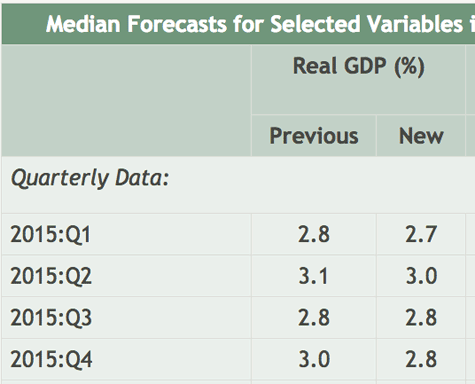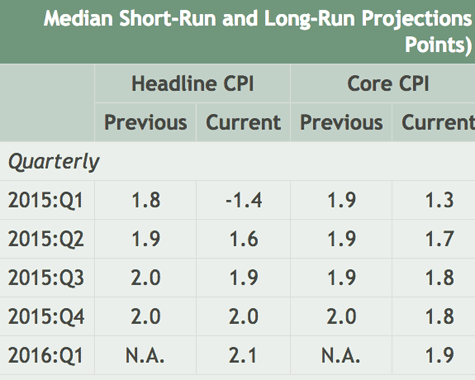Krugman on NRFPC
Paul Krugman has weighed in on my “never reason from a price change” argument.
[And of course NRFPC it isn’t my idea; it’s a part of EC101 that many economists never learned, or forget on occasion. Over at Econlog I cited a great Krugman essay where he claimed that one reason he became successful is that he took the stance of a rebel, while using arguments out of standard econ textbooks. I suggested someone else who had modest success doing exactly that.]
Here’s Krugman:
Sumner says that you can’t reason from a price change; the dollar doesn’t just move for no reason, so you have to go back to the underlying cause and ask what effect it has. Actually, asset price moves often have no clear cause “” they’re bubbles, or driven by changes in long-term expectations, so you really do want to ask about the effects of price changes you can’t explain very well.
Obviously I don’t agree about the existence of bubbles–Fama shoots that idea down in his Nobel lecture. But even if I’m wrong about bubbles, Krugman is wrong about the relevance of never reason from a price change to bubbles. It matters very much why prices change, even if those reasons are irrational. For instance, stock prices may be driven to irrational heights because:
A. People are irrationally pessimistic about NGDP growth, and this depresses bond yields to unreasonably low levels, and this discounts a given flow of earnings at a higher valuation.
B. People are unreasonably optimistic about the economy, and expect a highly implausible rate of growth in NGDP and profits.
Surely you can’t argue that it doesn’t matter which of those two types of irrationality cause the stock price “bubble”? And surely you can’t have confidence that something is a bubble without having some sort of view as to what market thinking is leading to the excessive price movements?
Krugman continues:
More specifically, Sumner is right that if the euro’s fall is being driven by expansionary monetary policy, this affects the U.S. through the demand channel as well as competitiveness, so it may be a wash. But I’ve already argued that the fall in the euro is much bigger than you can explain with monetary policy; it seems to reflect the perception that Europe is going to be depressed for the long term. And if that’s what drives the weak euro/strong dollar, it will hurt US growth.
I agree with the reasoning process in the last sentence. But I don’t think it applies to the current case, as it seems very unlikely that lower growth expectations are what is depressing the euro. Here’s what we do know:
1. Eurozone growth expectations have been in the toilet for years.
2. The euro was valued at about $1.35 for years, and then gradually fell to about $1.05 over the past few months.
3. During the past few months the growth forecasts of the eurozone have been revised upward, as the euro has been falling.
You don’t need to be an EMH fanatic like me to see a problem with Krugman’s argument. Kudos to him for not reasoning from a price change, for not lazily assuming that a weaker euro meant more growth. But I think’s he’s gone too far in the other direction, in assuming that the cause of the weaker euro was lower growth expectations.
Having said that, I’ll admit I’m a bit puzzled by the timing of the euro’s fairly steady decline. Some of that was associated with easy money statements coming out of the ECB, but not all. So there may be some other factor depressing the euro that I don’t see. I just don’t see any evidence that slower growth in the eurozone is that mysterious X factor. It’s not new information. On the other hand Krugman’s right that weaker growth might be the cause, so I’m willing to revise my views as new information comes in, such as another growth pause in Europe. There is no theoretical issue at stake here, separating our two views.
Off topic, don’t read too much into my statements on Fed policy over the next few years. Unlike in past years, when the Fed was clearly much too tight, I don’t think they are far off course. Some of my statements might suggest I think policy is not far off course, others might suggest I think policy is a bit too tight to hit the Fed’s dual mandate. There is no contradiction between those statements. It’s hard to evaluate current policy without knowing where the Fed wants to go, and they refuse to tell us where they want to be in 10 years, either in terms of the price level or NGDP. If they would tell us, I’d recommend they go there in the straightest path possible.
Also, I see people talking like it’s perfectly obvious that Fed policy is now much tighter than ECB policy. That’s not at all obvious. What causes that perception?
1. The ECB has recently loosened, and the Fed may have slightly tightened.
2. Rates are lower in Europe, and they are doing QE.
Neither of those are good reasons. During 2011-14 ECB was far tighter than in the US. So even though they have loosened, it doesn’t mean that ECB policy is looser in absolute terms. The deeper into a liquidity trap you fall, the more “concrete steppes” you need to achieve a given policy stance. And the eurozone has fallen very, very deeply into their liquidity “trap.” Of course neither interest rates nor the monetary base are good indicators of the stance of policy, unless you want to argue that the Fed’s highly deflationary policy of 1932 was actually easy money because rates were near zero and the Fed was doing QE. That claim would have been viewed as wacky 10 years ago, although I admit that many economists now seem hopelessly confused about how to define the stance of monetary policy.
As always, NGDP futures markets in the two regions would best establish the relative stances of monetary policy. TIPS markets suggest the ECB is still effectively tighter.
HT: Foosion, Edward



